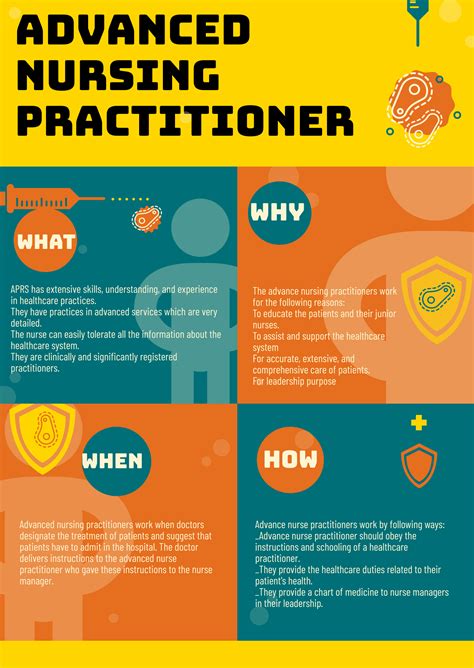Intro
Working in the healthcare industry can be a highly rewarding career path, offering numerous opportunities to make a positive impact on people's lives. Kaiser Permanente, a leading healthcare organization, provides a wide range of employment opportunities for individuals passionate about delivering high-quality patient care and improving community health. In this article, we'll explore five KP org employment opportunities to consider, highlighting the benefits, requirements, and growth prospects for each role.

1. Registered Nurse (RN)
Kaiser Permanente employs thousands of registered nurses across its hospitals, medical offices, and other healthcare facilities. As an RN, you'll play a vital role in providing patient-centered care, administering medications, and collaborating with other healthcare professionals to develop and implement treatment plans.
- Requirements: Current RN licensure, Associate's or Bachelor's degree in Nursing, and relevant experience
- Benefits: Competitive salary, comprehensive benefits package, and opportunities for professional growth and advancement
- Growth prospects: With the increasing demand for healthcare services, RNs can explore various specialties, move into leadership roles, or pursue advanced degrees
Specializations and Career Paths
- Critical Care RN
- Pediatric RN
- Operating Room RN
- Nurse Educator
- Nurse Manager

2. Nurse Practitioner (NP)
Nurse practitioners are advanced practice registered nurses (APRNs) who provide primary and specialty care to patients. As an NP, you'll assess patients, diagnose conditions, and develop treatment plans, often working independently or in collaboration with physicians.
- Requirements: Master's or Doctoral degree in Nursing, current NP licensure, and relevant experience
- Benefits: Autonomy in practice, competitive salary, and opportunities for professional growth and leadership
- Growth prospects: NPs can explore various specialties, pursue additional certifications, or move into education, research, or policy roles
Specializations and Career Paths
- Family Nurse Practitioner
- Pediatric Nurse Practitioner
- Gerontological Nurse Practitioner
- Nurse Educator
- Healthcare Consultant

3. Health Educator
Health educators play a crucial role in promoting healthy behaviors and disease prevention within communities. As a health educator, you'll design and implement educational programs, workshops, and materials to empower individuals and groups to make informed health decisions.
- Requirements: Bachelor's degree in Health Education, Public Health, or related field, and relevant experience
- Benefits: Opportunities to make a positive impact on community health, competitive salary, and professional growth prospects
- Growth prospects: Health educators can move into leadership roles, pursue advanced degrees, or explore related fields like health coaching or wellness program management
Specializations and Career Paths
- Community Health Educator
- Patient Educator
- Health Promotion Specialist
- Wellness Program Manager
- Public Health Advocate

4. Health Information Technologist
Health information technologists, also known as health information managers, are responsible for the collection, analysis, and dissemination of health data. As a health information technologist, you'll work with electronic health records, ensure data accuracy and security, and provide insights to healthcare professionals and administrators.
- Requirements: Associate's or Bachelor's degree in Health Information Technology, relevant experience, and certification (e.g., RHIT or CCA)
- Benefits: Opportunities to work with cutting-edge technology, competitive salary, and professional growth prospects
- Growth prospects: Health information technologists can move into leadership roles, pursue advanced degrees, or explore related fields like data analytics or healthcare consulting
Specializations and Career Paths
- Health Data Analyst
- Clinical Coding Specialist
- Health Information Manager
- Electronic Health Record Specialist
- Healthcare Consultant

5. Medical Researcher
Medical researchers play a vital role in advancing healthcare by conducting studies, collecting data, and analyzing results to improve patient outcomes and develop new treatments. As a medical researcher, you'll work in a dynamic environment, collaborating with clinicians, scientists, and other stakeholders to drive innovation and discovery.
- Requirements: Bachelor's or advanced degree in a life science, mathematics, or related field, relevant experience, and certification (e.g., CCRA or CCRC)
- Benefits: Opportunities to contribute to groundbreaking research, competitive salary, and professional growth prospects
- Growth prospects: Medical researchers can move into leadership roles, pursue advanced degrees, or explore related fields like science writing, editing, or policy development
Specializations and Career Paths
- Clinical Research Coordinator
- Research Scientist
- Biostatistician
- Science Writer
- Healthcare Policy Analyst
What are the most in-demand healthcare careers at Kaiser Permanente?
+Kaiser Permanente frequently hires for roles like registered nurses, nurse practitioners, health educators, health information technologists, and medical researchers.
What are the benefits of working at Kaiser Permanente?
+Kaiser Permanente offers a comprehensive benefits package, including medical, dental, and vision coverage, retirement plans, and paid time off, as well as opportunities for professional growth and development.
How can I search for job openings at Kaiser Permanente?
+You can search for job openings on the Kaiser Permanente website, using keywords, location, and job category to find relevant opportunities.
As you explore these KP org employment opportunities, consider how your skills, experience, and passions align with the roles and responsibilities. Remember to tailor your application materials, prepare for interviews, and be ready to contribute to the Kaiser Permanente team. Share your thoughts and experiences in the comments below, and don't forget to share this article with others who may be interested in pursuing a career in healthcare.
